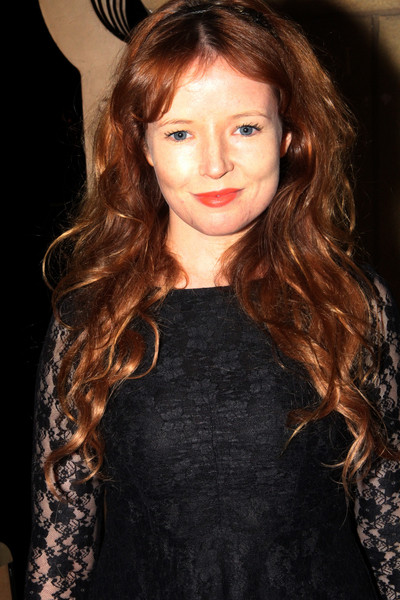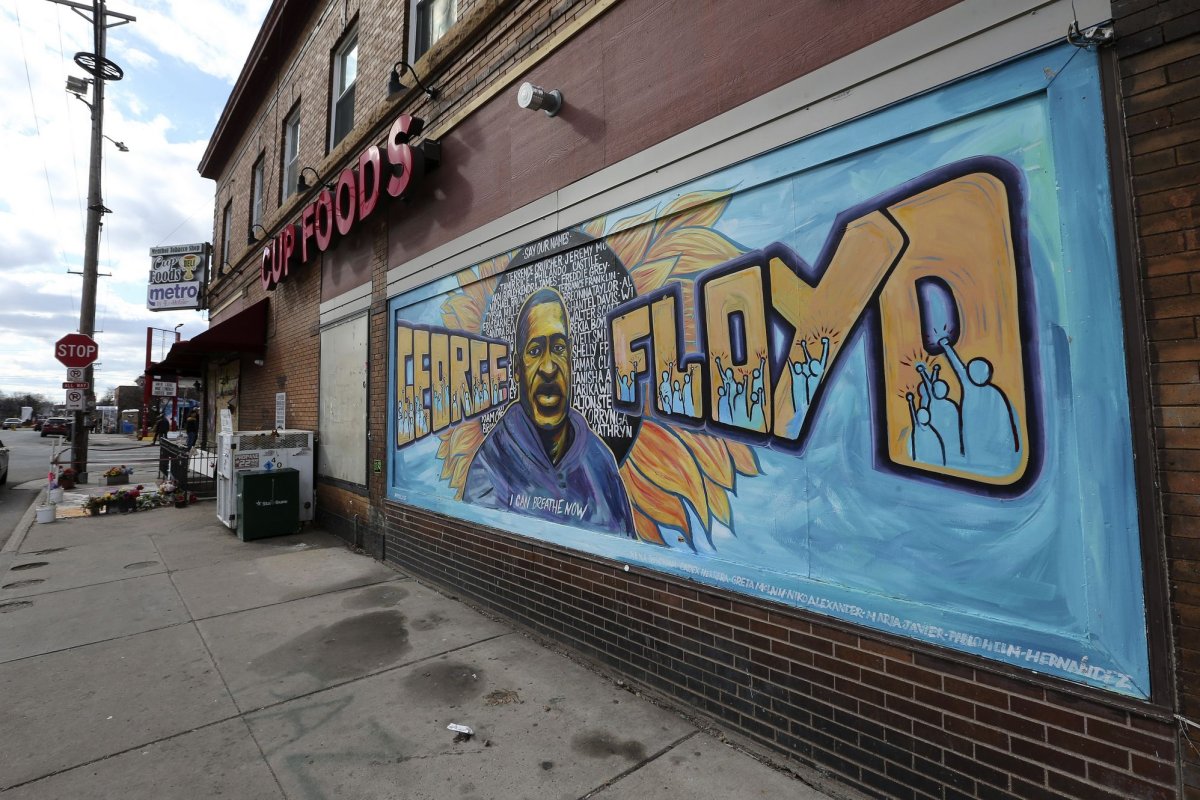Photo-Illustration: Vulture ; Photos: Chelcie Parry
If you’ve never been to the Edinburgh Fringe, there’s a taste of its unmistakable flavor on offer right now at Playwrights Horizons, where three small-scale shows are running in repertory. It’s still, after many years and a lot of change—to the festival, to the world; much obviously for the worse, the rest arguably so—one of my favorite flavors. It’s spicy and sweet and crunchy and chewy, sometimes overseasoned or underbaked (but hardly ever over-proofed!), and there’s boatloads of it, everywhere, at every hour of the day, in every backroom and ballroom and basement and bar. Shows are usually short and scrappy, often odd or intense (and sometimes in tents), and the city that churns with them for a month makes the argument for quantity: More art! Just more, everywhere, all the time, affordably.
This past August in Edinburgh, I saw Ikechukwu Ufomadu’s dapper, off-kilter Amusements in a space that felt like something between a small cave and a bunker. Now, the writer-comic’s plummy-voiced, tuxedo-sporting alter ego is hanging his fedora and overcoat upstairs at Playwrights, where he’s got a little more room to breathe and stretch. Ufomadu’s 75 minutes of weird, witty jokery is both delightful and, at this moment, almost unsettlingly kindly and innocuous. “Where would we be without shoes?!” he asks, impassioned, after going on for a good stretch about his own long-held status—and, indeed, all of ours—as a proud shoe-wearing individual. “I’ll tell you,” he says with a Johnny Carson smile. “We’d be at home.”
Backed by a red curtain, with a stand mic and a drinks cart onstage, Ufomadu is nailing a tilted take on a kind of old-world American masculine charm: urbane, imperturbable, magnanimous, a little myopic. Amusements often feels like stand-up comedy or vaudevillian variety show, but the twinkle in its performer’s eye is just peculiar enough to keep us guessing. What is Ufomadu doing here? Well, among other things he’s a first-rate mimic, and along with his resting dialect of affable mid-century radio announcer, we also get impressions of Kennedy, Sinatra, Jimmy Stewart, Louis Armstrong, and Obama during the show — along with, from across the pond, Michael Caine and Ian McKellen. McKellen recites a sonnet for us without the consonants (questionably funny to describe, extremely funny to listen to); Kennedy delivers an ardent oration on our audience’s inspiring ability, in the face of a tragically divided world, to come together by shouting the word “Woo!”; Sinatra sings the ABCs. At one point, Ufomadu makes the giggly room tense up by telling us he’s about to get serious — that he does have some heavy political things to get off his chest. He then sings like this for a not-short period of time. When he finishes, he sniffs with dignity: “Cancel me if you must.”
“I have no conscious intention of having anyone leave the show with any big thematic takeaways (though I cannot speak for my subconscious),” Ufomadu writes in a program note. The Ikechukwu Ufomadu up on stage has to check his notes for his own name—“I hope I’m pronouncing that correctly,” he says after butchering it—but the one outside the show, while equally playful and good-natured, is wilier. The game he’s playing is layered. On one level, he’s doing a rather wondrous job of keeping us laughing with jokes about apple juice and the variations on the word “to.” On another level, he’s sending up the idea of the comic who works from a place of complacency: “I’m sure you’re all wondering where I stand politically,” he grins — then gets stentorian. “I’ll tell you where I stand. In line. To vote! For representatives who have my best interests at heart.” Another grin: “And luckily they all do.”
It’s mischievous, helium-light satire — Ufomadu doesn’t have to rail at us over who usually gets to inhabit spaces of both humor and power. He just puts on a tux, plays a little smooth jazz, and takes us to a time when men were men, bars were well stocked, and jokes were good and clean, gosh darn it. But of course, the jokes aren’t just clean — they’re also marvelously bizarre. Amusements isn’t just stand-up and it isn’t just send-up; it’s what everything strange and worthwhile is — both, and more, and something else entirely.
With Sad Boys in Harpy Land, the self-described clown Alexandra Tatarsky is reaching for bothness, moreness, and all-around muchness. “If I had to tell you what this show is all about, I’d say it’s about getting into the ‘oo’ in doom,” she writes in her playwright’s note. “Or wanting to break things, at the same time as you want to repair them. And not quite knowing how to do either.” Sad Boys is one part of an ongoing show she calls SIGN FELT (A Show About Nothingness!) — and yes, that’s a Seinfeld pun. This is something she’ll be working on “for the rest of my life” she assures us with desperate, seventh-shot-of-espresso energy: “We are all now trapped together inside this ongoing and doomed gesamtkunstwerk. And sometimes, you know, the gesamtkunst isn’t werk…ing.”
I wish all of Sad Boys were as stupidly great as that joke. But while Tatarsky certainly knows her way around a Borscht Belt punchline, she’s also dedicated to a particular brand of performatively self-flagellating excess that often isn’t as outré as it is borderline tedious. “My mind is a hellscape!” she screams at us several times during the show, in between bouts of nervous laughing or weeping or faux vomiting or sucking down coffee or shoving her mouth full of tinned fish. She also tells us repeatedly that she has “no material,” that she forgot to write her play and is making it up as she goes along. The seeds that have produced Sad Boys are both intellectually intriguing and easy to sympathize with—who isn’t battling an ongoing existential crisis?—but all too often, the work produced feels buried in its own navel.
The contortion that pieces like Sad Boys try to pull off to avoid the above critique is: But I know I’m solipsistic! This whole piece is about my debilitating fear that all art is solipsistic, that it’s just empty ego, that it makes no difference, that I make no difference, that the abyss is all there is. Or, in Tatarsky’s words, it’s about “self-loathing and inaction.” There’s some very 2016 energy here: That’s when we all lost our minds and thought that maybe theatricalizing our guilt trips was the best way to do penance for some crushing, ever-accumulating set of sins. But being aware of something doesn’t mean you’ve escaped its trap (for reference, see any guy interrupting a woman to explain toxic masculinity). Tatarsky is intensely, nerve-shreddingly aware. And where it’s led her is to a show that feels more like a manic extended mea culpa than a theatrical revelation.
She is, however, physically fearless—she flails and twists, covers herself in clown makeup, beats herself up and gets (mostly) naked with total abandon—and there are things in the overstuffed trunk of Sad Boys that are genuinely compelling. Underneath all the splatter (emotional and aesthetic), the show’s meta-concept is that Tatarsky has discovered two old German books about two sad German boys: Johann Goethe’s Wilhelm Meister’s Apprenticeship and Günter Grass’s The Tin Drum. The heroes of both are, in their different ways, strange and stunted — they aspire to make art but perhaps do nothing. As a child, Wilhelm Meister envisions an epic play that he works on constantly but never actually writes, and, as a child, The Tin Drum’s Oskar Matzerath decides, literally, not to grow up. He remains three feet tall, though he does have his toy drum and a scream that can shatter glass.
Tatarsky’s clown is caught up in her own possibly eternal process (or damnation?) of trying to make a play that smashes Oskar and Wilhelm and herself together, and some of her sharpest and funniest work occurs in her show’s first half, as she attempts to explain this torturous meta-theater venture to us. She’s appealingly unhinged as she bounces between characterizations of Oskar, Wilhelm, and Wilhelm’s mother (constantly standing outside his bedroom door shouting), and a sequence where she physicalizes her title by enacting tableaus of various “sad boys” is very funny stuff. “I reach for my spear. But I’m… ambivalent about it,” she says, perfectly mimicking a classical Greek “sad boy statue”; “I turn in on myself. But I still want to be seen!… Sad boy in a painting…. Hamlet!… Jesus! Ultimate sad boy.”
“I turn in on myself. But I still want to be seen!” is practically Tatarsky’s battle cry. In moments like this one, it works: Her always-awareness softens — she becomes more generously self-satirizing. And it helps when she’s actually looking outside herself, keenly and amusingly observing pieces of the world that we’ve all seen (or maybe we haven’t), in order to make us both laugh at them and see them anew. But Sad Boys spends very little time beyond the interior of Tatarsky’s head. Eventually, we’re all asked to stand up and follow her up onto the stage—while singing a song about the apocalypse and doing a dance like a bunch of old Hasids—so that the show’s second part can unfold in another environment: a scruffy, nest-like evocation of her bedroom (or Oskar’s, or Wilhelm’s), that might also just be “Harpy Land.” This is her name for the seventh circle of hell from Dante’s Inferno, where the souls of those who’ve committed suicide become trees, and harpies peck at them for all eternity.
Again, the collection of references and potential ingredients is tantalizing. Tatarsky doesn’t have “no material,” she has plenty, but she keeps scattering it in her own predilection for extended, self-engrossed freak-out. “Okay I confess!” she cringes at one point, “My father had some success in business, and that is why I have all these resources to sort of hang around making theater that will change the world.” True? I don’t know, but it was enough to make me check right out. Theater of mess, theater of cruelty, theater of titillation or exhibitionism or existential crisis: It’s possible to do something radical with all of them, but not if they can’t get out of their own way — not if they also insist on being theater of apology.
Not five minutes into School Pictures, the gently riveting writer/performer Milo Cramer has dropped the mic: “The people with urgent stories to tell don’t have the means to tell them,” he sings quietly, with a light strum of the ukulele. “The people who have the means to tell stories don’t have urgent stories to tell.”
Well, there it is, kids — I guess we can all go home now. But no, don’t go home, stay: School Pictures is just getting started, and in a little over an hour, it unfolds into an extraordinary meditation on teaching, learning, what we’re learning through institutional structures as much as through literal instruction, and what kind of world we’re still building, when—as Cramer writes in his program note—“we relentlessly tell our children and each other, in ten thousand ways both insidious and explicit, in business and in academia and even in the arts: BE NORMAL, WIN, OR ELSE.”
For five years, Cramer worked as a private tutor in New York City, mostly tutoring for the Specialized High School Admissions Test, or SHSAT. As he explains to us at a crucial point in School Pictures, you take the exam in eighth grade “if you want to go to one of New York’s eight elite public high schools…. You can only take the test in English. Information about the test, including that it exists, when it is administered, and what’s on it, is not distributed equally to every middle school student.” Roughly 65 percent of students in New York City public schools are Black or Latine. Roughly 80 percent of the students in the eight elite public high schools are white or Asian American. “The only admissions criteria is your test score.”
Before we get this harrowing lesson—delivered with speed, humor, and clarity at a blackboard where we’ve got to try to keep up with the figures as Cramer, tutor mode engaged, dashes them down in chalk—we’ve been listening to sweet little songs about kids for about 45 minutes. This is what School Pictures is: a show in which an unassuming millennial, armed with a sweater, a ukulele, and a series of keyboards (from baby toy piano to Casio), moves one by one through a row of pieces of colored construction paper, hung on the wall, each one with a name on it, each one representing a particular child, each one generating a song.
“Charlotte is in seventh grade / she wants to be an actress,” Cramer sings, then pauses. “I mean she is an actress / she’s just in seventh grade.” There’s Faith, who hates reading; Terrance, a 12-year-old BAM subscriber who was expelled from “an elite home school” and wants to know if Cramer’s coat is “designer”; Abby, who’s nationally ranked in lacrosse but “lost the state championship” and is now desperately drafting “strategic emails” to high school coaches; Javier, who thinks we’re all fucked and “all that’s left to do is party”; Jade, who’s forgotten her flashcards; and Divya—poor Divya—who “has to respond to the question: ‘Is Shakespeare’s Othello racist?’ in a five-paragraph essay for her white teacher, by Monday.”
Cramer isn’t (to borrow a term) an elite musician. He describes himself as playing ukulele “kinda good and the piano hardly at all.” He dealt with a speech impediment growing up, and there are still moments of flicker and fuzziness around the edges of his words. What he’s doing is simply structured, generously conceived, full—inside its simple container—of irresolvable yearning and wondering, guessing and risking — and it’s completely wonderful. By setting to music the stories of his students (fictionalized, of course, out of respect for them), he’s interrogating himself as a teacher and as a grown-up, along with the system he and these kids and all of us exist within, the structure that’s hammering our values into specific shapes every day, whether we sense it or not. He’s full of uncertainty and insecurity (“I confess that I / really want Terrance / TO THINK I’M COOL / I REALLY WANT THAT / I’M THIRTY-TWO”) but also of kindness, curiosity, and patience (“I tell [Javier], ‘Hope is practical!’ / I actually say those words! He looks extremely bored”). In the face of these anxious, specific, smart, weird, struggling kids, he becomes a kind of clown: Constantly surprised, always adjusting, solution-less, full of wonder, present.
But Divya needs a solution. “Is Othello racist, yes or no?” With her vignette—as with all of School Pictures’ beautifully delicate, sad and hilarious songs—Cramer is reaching for nuance in the face of a world that wants test scores and hot takes. He’s stretching like a kid on a stool going for the cookie jar, and it is precarious. In a gloriously dizzying sequence, he rattles off possible correct answers to Divya—“YES, Othello is very racist” because this; “NO, Othello is not super racist” because that—complete with “unique body paragraphs” full of supporting evidence. Then he goes for the hat trick. He tries to argue to Divya that, apart from whatever answer her teacher wants, maybe what’s racist is “the Shakespeare Industrial Complex” — the fact “that we’re required to read Othello for the billionth time…. When we could be reading any number of contemporary Black playwrights.” Cramer has set himself up to get a sophisticated New York City audience’s applause at this point, and he gets it. But then, Divya’s voice comes out from inside him in response: “Don’t hate me, but / I kind of liked reading Othello. / The story is really crazy / and the language is really pretty.”
If, as the cliché states, a picture really is worth an essay’s worth of language, then it’s because a silent image can carry contradiction—bothness, fullness, muchness—with an ease that words can only aspire to. Words work so hard, try to do so much, and often fail. Cramer has hit on the perfect title for his show because what he’s giving us—in each funny, pondering song, each struggling collection of words—is an image that holds the insoluble. These are unanswerable questions, questions that won’t be on the test, and they’re the kind that matter most.
School Pictures, Amusements, and Sad Boys in Harpy Land are at Playwrights Horizons through December 3.



